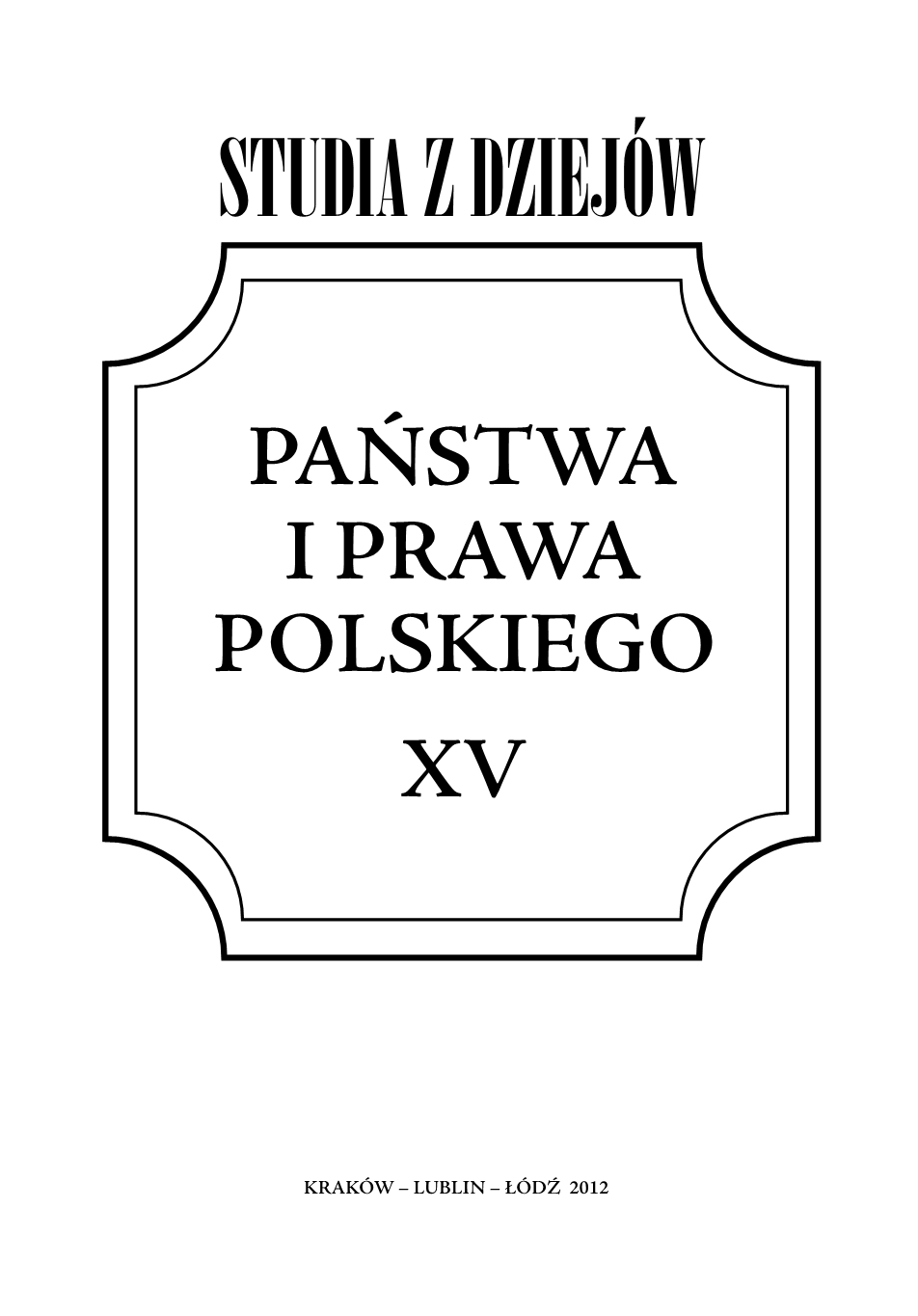Kształtowanie się instytucji odpowiedzialności posiłkowej na ziemiach polskich w prawie karnym skarbowym do 1936 r.
The shaping of the institution of subsidiary responsibility in Poland in penal revenue law before 1936
Author(s): Justyna Bieda, Katarzyna Rydz-Sybilak, Dorota Wiśniewska-JóźwiakSubject(s): History of Law, Criminal Law, Interwar Period (1920 - 1939), Fiscal Politics / Budgeting, Penal Policy
Published by: Oficyna Wydawnicza AFM Uniwersytetu Andrzeja Frycza Modrzewskiego w Krakowie
Keywords: penal revenue law
Summary/Abstract: The beginning of the system of fiscal law and ensuing criminal fiscal law in Poland was defined by the dissimilar legislations of the three partitioning powers. This is why the liability of the third parties for the fines administered on to the perpetrator of a fiscal crime, although it emerged in Poland for the first time still during the partitioning, it did so only within the Prussian Partition. It had not been until the Act of 2nd August 1926 that uniform solutions were introduced for the entire country. The fiscal nature of that regulation did not overshadow the rational approach to the question of the rights of the accused during the trial, which was followed also by the judicature, assuming that the ruling court is not bound to rule exofficio on third party liabilities (Art. 33, 34 UKS). The lack of a statement in this area did not cause any negative impact for the accused as the above legislation protected only at the interests of the State Treasury, and especially the guarantee of paying the penalty, should it be impossible to collect it from the assets of the condemned.
Journal: Studia z Dziejów Państwa i Prawa
- Issue Year: XV/2012
- Issue No: 1
- Page Range: 125-144
- Page Count: 20
- Language: Polish

